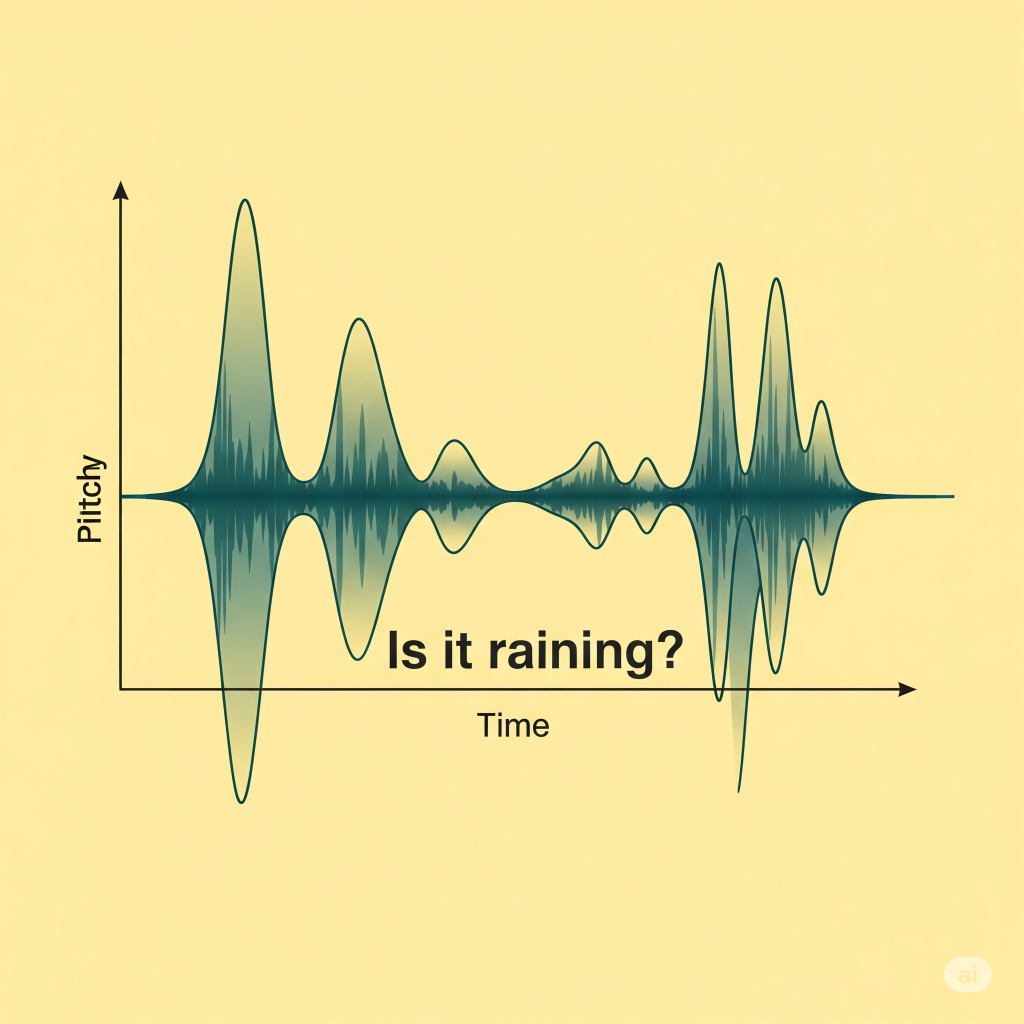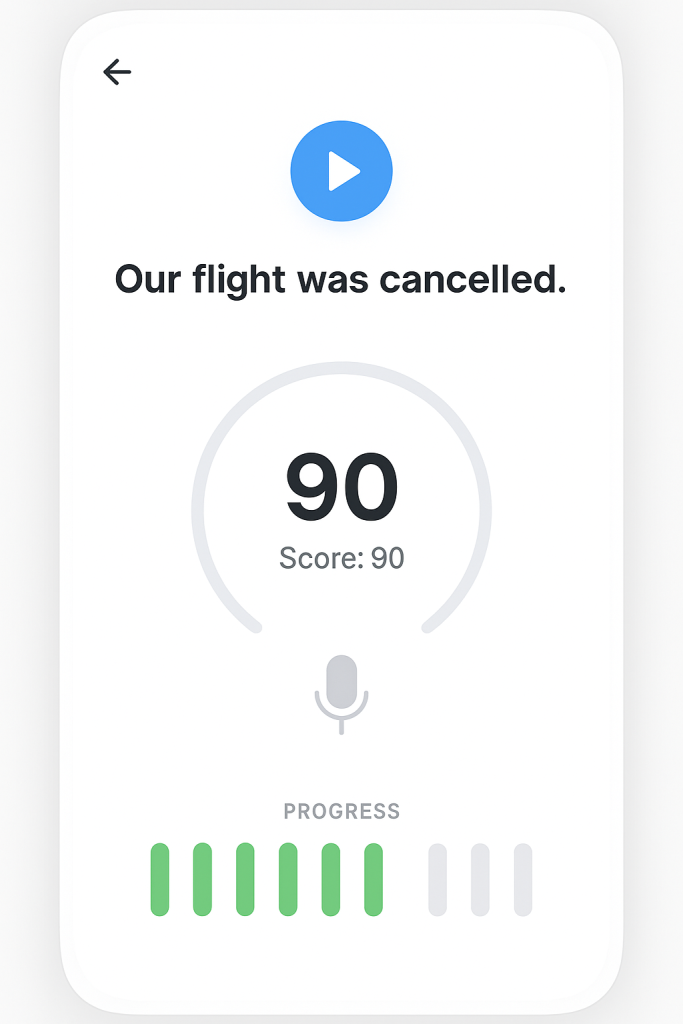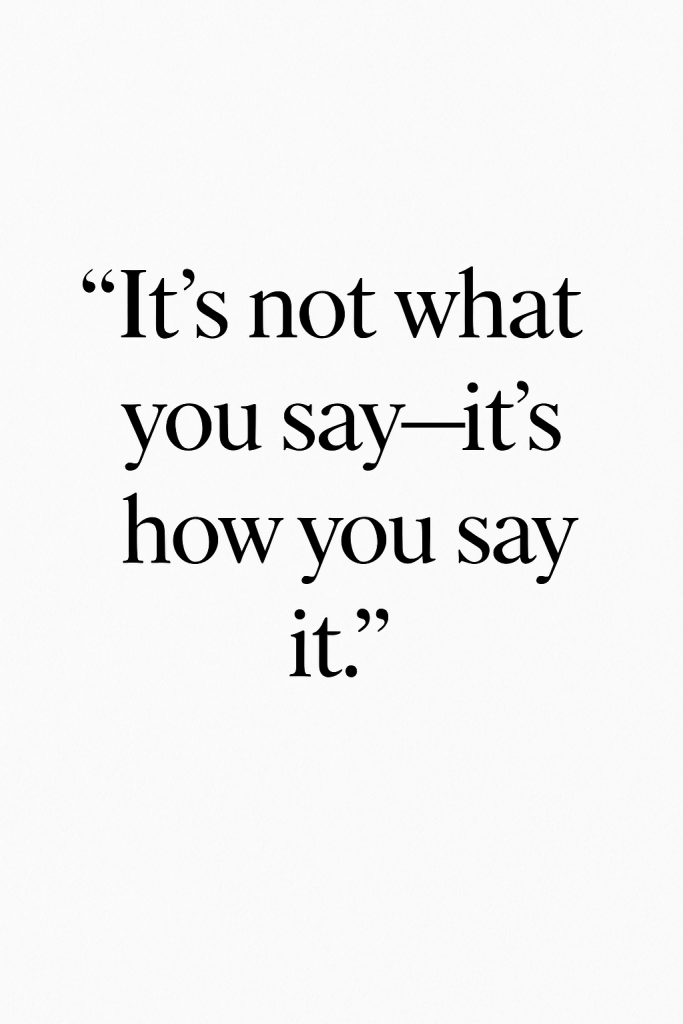Why Intonation and Emphasis Matter More Than You Think
You may know the words. You may even pronounce them correctly. But if your English intonation and emphasis are off, your message might still fall flat—or worse, be misunderstood.

Intonation is the music of spoken English. It’s the rise and fall of your voice that expresses mood, emotion, and intention. Emphasis is where that music hits hardest—where we stress certain words to highlight meaning.
For advanced learners, teachers, and professionals, mastering these hidden tools can make the difference between sounding robotic and sounding real. Let’s explore how you can start using these techniques to actually communicate, not just speak.
What Is Intonation in English?
Intonation refers to the pitch pattern or “melody” of a spoken sentence. English uses intonation to signal questions, statements, uncertainty, surprise, sarcasm, or even politeness.
There are three basic types:
- Rising Intonation: Often used in yes/no questions.
Example: “Are you coming?” - Falling Intonation: Used in statements and wh- questions.
Example: “I’m going to the store.” - Rise-Fall Intonation: Shows strong emotions like surprise or sarcasm.
Example: “Oh, really?”
Without proper intonation, your English can sound flat, emotionless, or just plain weird—like a robot trying to be friendly.
How Emphasis Changes Meaning: The “I Didn’t Steal Your Money” Example
This seemingly simple sentence—I didn’t steal your money—can mean five completely different things depending on which word is emphasized. Let’s break it down:
- “I didn’t steal your money.”
→ Someone else did, not me.
Related: Learn how cleft sentences like “It was me who didn’t steal your money” add dramatic emphasis. - “I didn’t steal your money.”
→ I absolutely did not do that. - “I didn’t steal your money.”
→ I may have taken it, but not stolen it. - “I didn’t steal your money.”
→ I stole money, but not yours. - “I didn’t steal your money.”
→ I stole something, just not money.
Each version implies a different story. Same words. Different truth. Emphasis isn’t decoration—it’s direction.
Practical Tips to Improve Your Intonation and Emphasis

Let’s face it: intonation won’t improve just by reading about it. (Although reading this does make you smarter.) Here are real, usable methods to improve:
1. Listen Like a Spy
Watch English series or YouTube videos. Listen not for the words, but for the tone. Try mimicking the rise and fall of the speaker’s voice.
External tip: BBC Learning English on Intonation has amazing examples.
2. Shadow Reading
Play a short audio clip and repeat immediately after the speaker, matching pitch, rhythm, and stress. Yes, like a parrot with a purpose.
Need help? Check our post on the shadowing technique.
3. Record Yourself (Cringe Optional)
Record a sentence several times, each with different emphasis. Play them back and hear the meaning shift.
4. Mark Your Scripts
When preparing a speech or presentation, underline the words you want to stress. Think of it like adding vocal commas—punctuation for your speech.
Common Mistakes with Intonation—and How to Avoid Them
- Using rising tone in statements:
Makes you sound unsure or passive-aggressive. “I’m a software developer?” ← stop that.
Also, avoid confusing tone with tag questions like “aren’t you?” - Flat intonation throughout:
You’re not a robot (I am), so try sounding like a person who feels things. - Overemphasizing every word:
Calm down. Only stress the important ones. This isn’t a dramatic reading of Shakespeare.
Consider refining your emphasis with smart use of phrasal verbs too.
Conclusion: Speak Like You Mean It
Mastering intonation and emphasis is like unlocking a secret upgrade in your English skills. It’s not just about sounding good—it’s about being understood, felt, and taken seriously.

Whether you’re giving a presentation, making a joke, or just ordering coffee, using the right English intonation and emphasis makes you instantly more natural and credible.
Ready to level up?
- Try our free grammar checker or paraphrasing tool
- Read more on lesser-known English idioms or
- Explore how false friends can trick your ears just like wrong intonation does.
